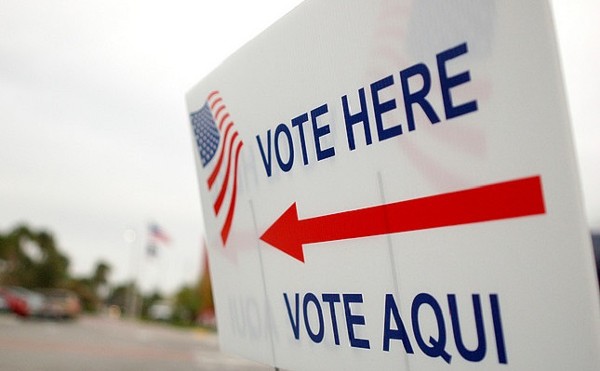
Texas Attorney General Ken Paxton sued TikTok on Thursday for sharing and selling minors’ personal information, violating a new state law that seeks to protect children who are active on social media, accusations that the company denied hours later.
The Securing Children Online through Parental Empowerment Act prohibits social media companies from sharing or selling a minor’s personal information unless a parent or guardian approves. The law, which was passed by the Legislature last year and partially went into effect Sept. 1, also requires companies to create tools that let verified parents supervise their minor child’s account.
Paxton argues in the legal filing that TikTok, a short-form video app, has failed to comply with these requirements. Although TikTok has a “family pairing” feature that allows parents to link their account to their teen’s account and set controls, parents don’t have to verify their identity using a “commercially reasonable method,” as required by Texas law. The minor also has to consent to the pairing.
Paxton also argues that TikTok unlawfully shares and sells minors’ personal identifying information to third parties, including advertisers and search engines, and illegally displays targeted advertising to known minors.
“I will continue to hold TikTok and other Big Tech companies accountable for exploiting Texas children and failing to prioritize minors’ online safety and privacy,” Paxton said in a statement. “Texas law requires social media companies to take steps to protect kids online and requires them to provide parents with tools to do the same. TikTok and other social media companies cannot ignore their duties under Texas law.”
A TikTok spokesperson denied Paxton's allegations, pointing to online information about how parents in certain states, including Texas, can contact TikTok to request that their teen's account is deleted. Parents are asked to verify their identify but submitting a photograph of themselves holding their government-issued ID. According to TikTok's privacy policies, the company does not sell personal information. And personal data is not shared "where restricted by applicable law."
"We strongly disagree with these allegations and, in fact, we offer robust safeguards for teens and parents, including family pairing, all of which are publicly available," TikTok spokesperson Jason Grosse wrote in a an emailed statement. "We stand by the protections we provide families."
Paxton’s lawsuit was filed in a federal district court in Galveston. The filing comes after a federal district court judge in August temporarily blocked part of the social media law from taking effect as a legal battle over the law’s constitutionality continues to play out.
Two separate lawsuits were filed seeking to block the law. One suit was filed by tech industry groups that represent large digital companies including YouTube and Meta. A second lawsuit was filed by a free speech advocacy group.
Days before the law was scheduled to take effect, Judge Robert Pitman blocked a part of the law that would have required social media companies to filter out harmful content from a minor’s feed, such as information that features self-harm or substance abuse. But Pitman allowed other pieces of the law to take effect, such as the prohibition on selling or sharing minor’s data, as well as a new rule that social media companies let parents monitor their child’s account.
Meta, the parent company of Instagram and Facebook, rolled out new parental control features in response to Texas’ law. Now, parents who can prove their identity with a valid form of identification can set time limits on their child’s usage and update their teen’s account settings. A Meta spokesperson also said the company does not share or sell personal data.
The consumer protection division of Paxton’s office has sole authority to enforce the law. They are seeking civil penalties of $10,000 per violation, as well as attorney’s fees.
Texas is one of several states that have recently passed laws attempting to regulate how social media companies moderate their content. Those laws have also faced backlash from the tech industry and from free speech groups.
Disclosure: Facebook has been a financial supporter of The Texas Tribune, a nonprofit, nonpartisan news organization that is funded in part by donations from members, foundations and corporate sponsors. Financial supporters play no role in the Tribune's journalism. Find a complete list of them here.
This article originally appeared in the Texas Tribune.
The Texas Tribune is a member-supported, nonpartisan newsroom informing and engaging Texans on state politics and policy. Learn more at texastribune.org.
Subscribe to SA Current newsletters.Follow us: Apple News | Google News | NewsBreak | Reddit | Instagram | Facebook | Twitter| Or sign up for our RSS Feed















